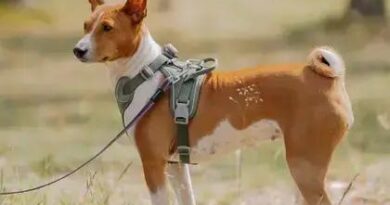What is anxiety in dogs
What is Anxiety in Dogs?
Anxiety in dogs is a complex emotional state characterized by feelings of fear, worry, and apprehension. It can manifest in various forms, including separation anxiety, noise phobia, and general anxiety disorders. Understanding what anxiety in dogs entails is crucial for pet owners to provide the necessary support and care for their furry companions.
Types of Anxiety in Dogs
There are several types of anxiety that dogs may experience. Separation anxiety occurs when a dog becomes distressed when left alone. Noise anxiety is triggered by loud sounds, such as thunderstorms or fireworks. Additionally, some dogs may experience social anxiety, which can lead to fear of unfamiliar people or other animals. Recognizing the specific type of anxiety is essential for effective treatment.
Signs of Anxiety in Dogs
Identifying the signs of anxiety in dogs is vital for early intervention. Common symptoms include excessive barking, destructive behavior, pacing, trembling, and hiding. Some dogs may also exhibit changes in appetite or grooming habits. Being attentive to these behaviors can help owners determine if their dog is suffering from anxiety and needs assistance.
Causes of Anxiety in Dogs
The causes of anxiety in dogs can vary widely. Genetic predisposition, past traumatic experiences, and lack of socialization during critical developmental periods can all contribute to anxiety. Additionally, changes in the dog’s environment, such as moving to a new home or the introduction of a new family member, can trigger anxiety symptoms. Understanding these causes can aid in prevention and management.
Diagnosis of Anxiety in Dogs
Diagnosing anxiety in dogs typically involves a thorough evaluation by a veterinarian or a certified animal behaviorist. The professional will assess the dog’s behavior, medical history, and any potential underlying health issues. This comprehensive approach ensures that the diagnosis is accurate and that any other medical conditions are ruled out before implementing a treatment plan.
Treatment Options for Anxiety in Dogs
Treatment for anxiety in dogs can include behavioral modification techniques, environmental changes, and, in some cases, medication. Training methods such as desensitization and counter-conditioning can help dogs gradually adapt to their triggers. Additionally, creating a safe space for the dog and providing interactive toys can alleviate anxiety. In more severe cases, veterinarians may prescribe anti-anxiety medications to help manage symptoms.
Preventing Anxiety in Dogs
Preventing anxiety in dogs involves proactive measures during their early development. Socialization is key; exposing puppies to various environments, people, and other animals can help them build confidence. Consistent training and positive reinforcement can also foster a sense of security. Establishing a routine can provide stability, reducing the likelihood of anxiety-related issues later in life.
Home Remedies for Dog Anxiety
Many pet owners seek home remedies to help alleviate anxiety in their dogs. Natural supplements, such as CBD oil, chamomile, and valerian root, have gained popularity for their calming effects. Creating a calming environment with soft music, aromatherapy, and comfortable bedding can also help soothe anxious dogs. However, it’s essential to consult with a veterinarian before trying any home remedies to ensure they are safe and appropriate.
When to Seek Professional Help
If a dog’s anxiety symptoms persist or worsen despite efforts to manage them, it may be time to seek professional help. A veterinarian or animal behaviorist can provide tailored advice and treatment options. Early intervention is crucial, as untreated anxiety can lead to more severe behavioral issues and negatively impact the dog’s quality of life.
Conclusion
Understanding what anxiety in dogs is and how it affects their behavior is essential for any dog owner. By recognizing the signs, causes, and treatment options available, owners can take proactive steps to ensure their pets lead happy and healthy lives. With the right support, dogs can overcome anxiety and thrive in their environments.




